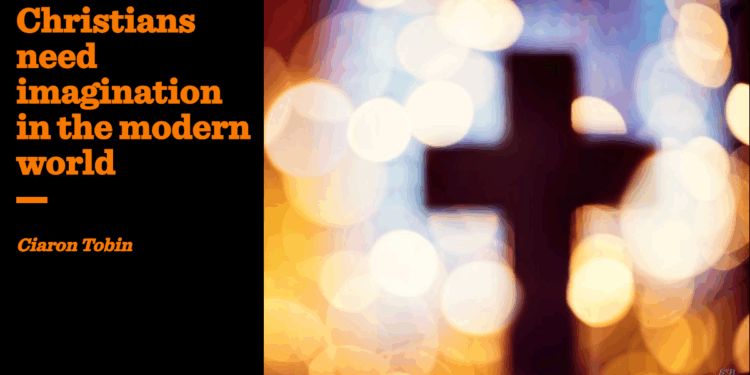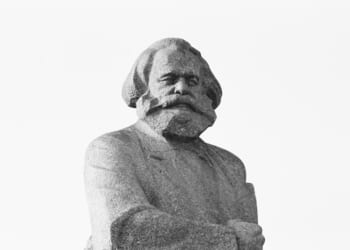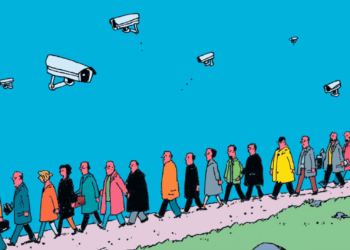Last weekend, in Westminster, church leaders, theologians, and politicians gathered under the banner Faith, Freedom and Politics: Christians and Public Life.
The purpose was clear: to thrash out the principles of a new “Westminster Declaration” — a statement to reassert the place of Christianity in the nation’s public square.
On paper (indeed in my own paper), it seemed timely — an attempt to ride Britain’s flicker of renewed faith into a wider conversation about freedom and politics.
The first speaker was Michael Nazir-Ali, the Anglican bishop turned Catholic convert, who attacked the atomisation of UK politics. Christians, he said, are called to community, not to social contracts and certainly not to withdrawal.
Monsignor Nazir-Ali invoked Moses, Samuel and Deuteronomy, sketching a vision of constitutional monarchy as divinely modelled and chosen by the people. It was the people who bore God’s light on earth together.
“Are we being called to be communities of light?” he asked. “Light is what dispels ignorance … Christians cannot willingly watch others be led astray” — and so they must engage in politics.
The imagery of light is well-worn. One thinks of President George H. W. Bush’s “a thousand points of light”, or even the 2010s movement to “Clean for the Queen”. No doubt the conference hoped to cast light as a purifier of today’s untruths, but the metaphor is tired.
The heavy lifting fell, as it often does, to Lord Nigel Biggar. He made the strongest case of the day: Christians must recover the language of duties, not rights. Rights are not absolutes, he argued, but must be exercised within a moral framework.
The “right to offend”, for example, is no licence for nihilism. Christians are called to truth and to love, not to slaughter and mock sacred cows for sport.
A robust and most of all clear argument: Christians are not shouty individualists “expressing themselves”. Their self-worth is defined by Him above: prophets, “mouthpieces of truth” and servants of duty.
Rights without duty collapse into mere self-expression, and rights-talk without duty-talk is a dead end.
First it collapses into licence: everyone doing as they please without reference to truth or neighbour. Then, inevitably, it provokes restriction, as society clamps down on the chaos it has unleashed.
All the conference speakers emphasised the building of a moral framework in one way or another. But just who is listening? In truth most of the audience were already convinced pensioners.
At times the spectacle resembled a Salvation Army reunion fuelled by instant coffee. Men in provincial red blazers, women in oversized glasses, you get the picture — the mission was standard: to reclaim ground in a culture where faith is often sidelined.
That mood carried into audience comments. The cadences of the attendees echoed the lay preachers of an earlier age, and they spoke as if Britain’s cultural crisis could be solved with one more sermon on the weekly moral panic.
After the talks, “workshops” to collaborate with the audience on specific issues were convened. It was in these workshops that the real meat and bone of the day appeared. The sessions were “to feed” into the Declaration.
In the end-of-life care session, discussion turned from abstractions to lived realities: what happens when doctors or authorities do not trust your wishes, or when families feel shut out of decisions?
Sensitive cases were aired, raising the hard questions of who is heard when a know-it-all doctor has the final say as life draws to a close. Here, unlike the set-piece speeches, the stakes were not theoretical but deeply human.
The atmosphere told a different story once the workshops had ended and the crowd reassembled in the main hall. The day ended with a reading of the new Westminster Declaration. It was at once full of noble values and weary predictability: affirming traditional marriage, biological sex, and the value of human life.
It left one wondering: what, then, was the point of those workshops? What should have been a manifesto for re-engagement too often felt like an already done conclusion of usual grievances. “Please sign before you leave.”
And so, the problem revealed itself. Yes, Biggar was right: rights-talk cannot save us. But duty-talk on its own, without imagination, will not move hearts either.
What is needed is a cultivated habit of translating Christian conviction into a vision people can see and follow. Booth’s Salvation Army understood this: they didn’t just preach light; they marched into the public square with drums and uniforms that made them impossible to ignore.
The modern equivalent would hardly be a brass band on Whitechapel Road, but the principle stands. Imagination today might mean Christians who quietly take up posts in schools, councils, professional services, and universities: packing the institutions first, then shaping their policies and habits from within once the time is right.
Grievance is not a strategy that leads to renewal
The conference was heavy with grievance: Christians ignored, Christians mocked, Christians marginalised. All of it may be true. But grievance is not a strategy that leads to renewal. At best, it is a prelude to it. The challenge is to turn lament into vision. Without leadership, Christian duty risks becoming a language understood only by learned insiders.
If Christians are to shape politics again, it will not be through nostalgic sermons or colourful blazers. It will be through the kind of imagination that Booth’s early evangelicals once embodied, and that Catholic social teaching still occasionally dares to propose: faith translated into public duty, lived with joy and audacity.
Until then, well-intentioned conferences like this risk becoming what this one revealed: less Faith, Freedom and Politics than Faith, Freedom and Politics Remembered.
Not the trumpet blast some had hoped for, but at least another step toward Christians thinking about their public voice. Whether it becomes more than words on paper will depend on whether imagination, not just grievance, can take hold.












